Tools Required
EN-48108
Rear Main Oil Seal Installer
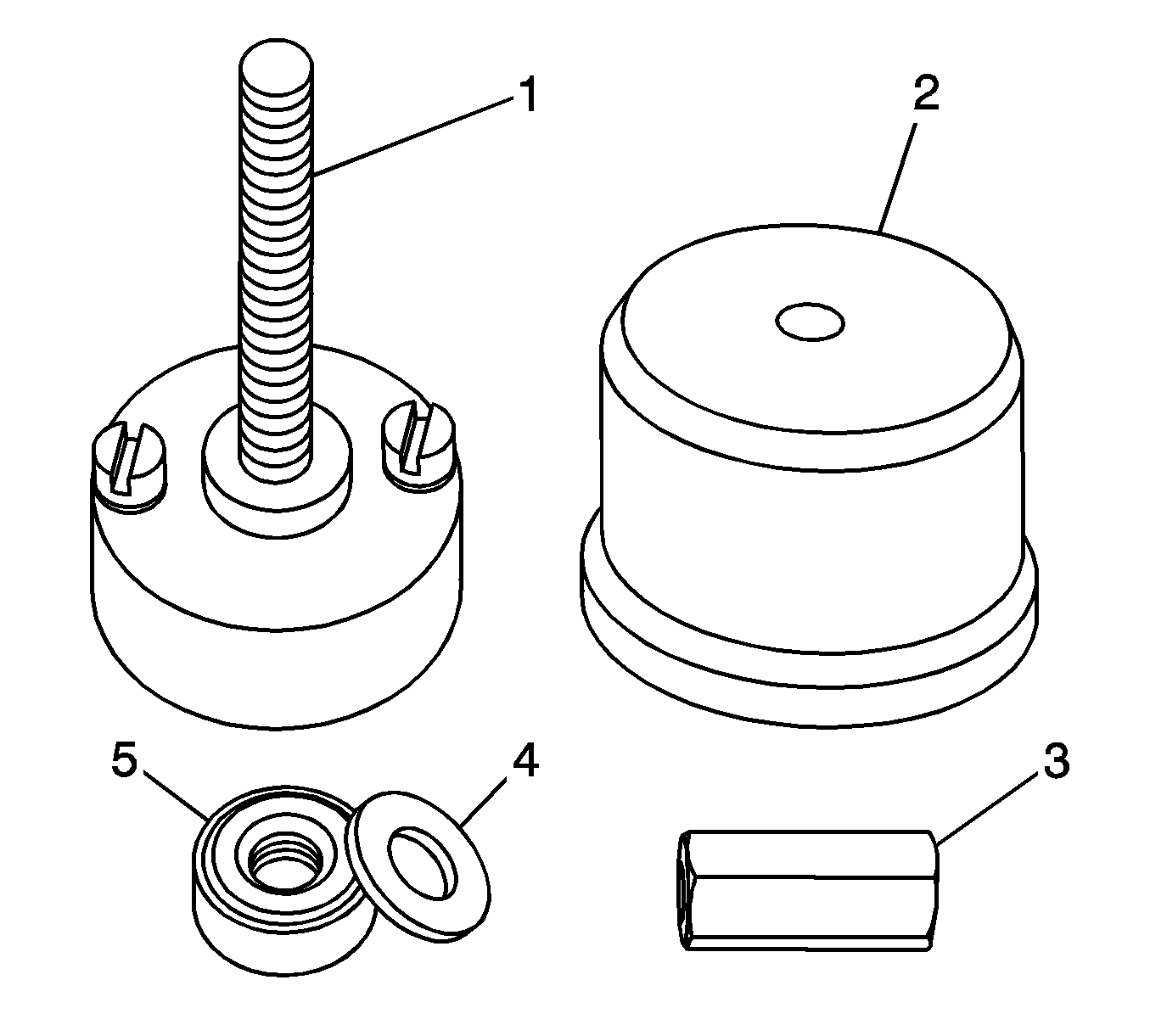
Notice: Do not remove protective nylon sleeve prior to installation.
The rear main oil seal installation tool is designed to install the rear main seal with the protective sleeve in place. Never apply or use any oil, lubricants or sealing compounds on the crankshaft rear main oil seal.
Notice: Clean the crankshaft
sealing surface with a clean, lint free towel. Inspect lead-in edge of crankshaft
for burrs/sharp edges that could damage the rear main oil seal. Remove burrs/sharp
edges with crocus cloth before proceeding.
- The
EN-48108
tool has a unique design to allow the technician to easily install the rear main seal squarely to the correct depth and direction. Before proceeding with installation, review the above
illustration to become familiar with the following components:
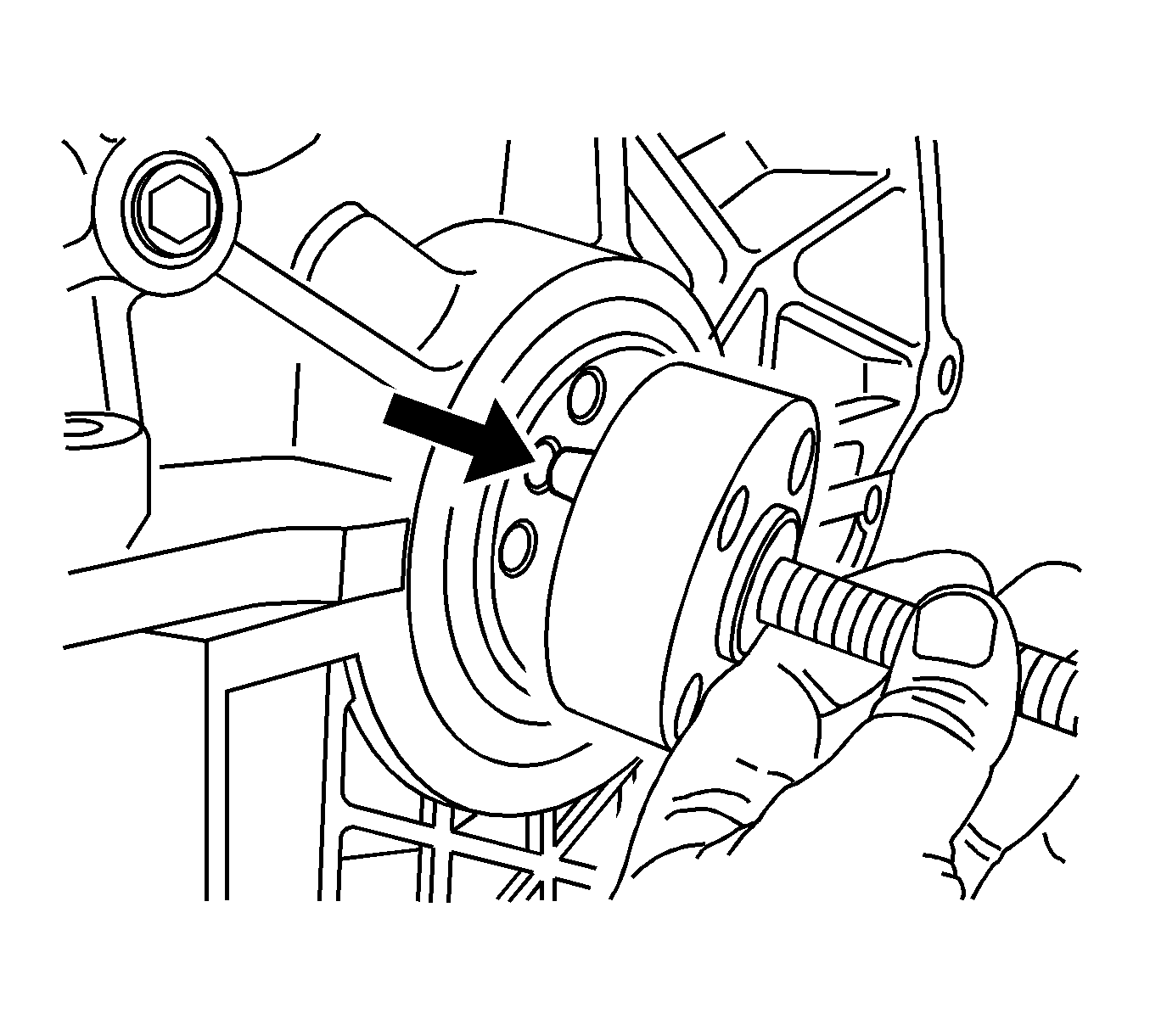
- Align the mandrel dowel pin to the dowel pin hole in the crankshaft.
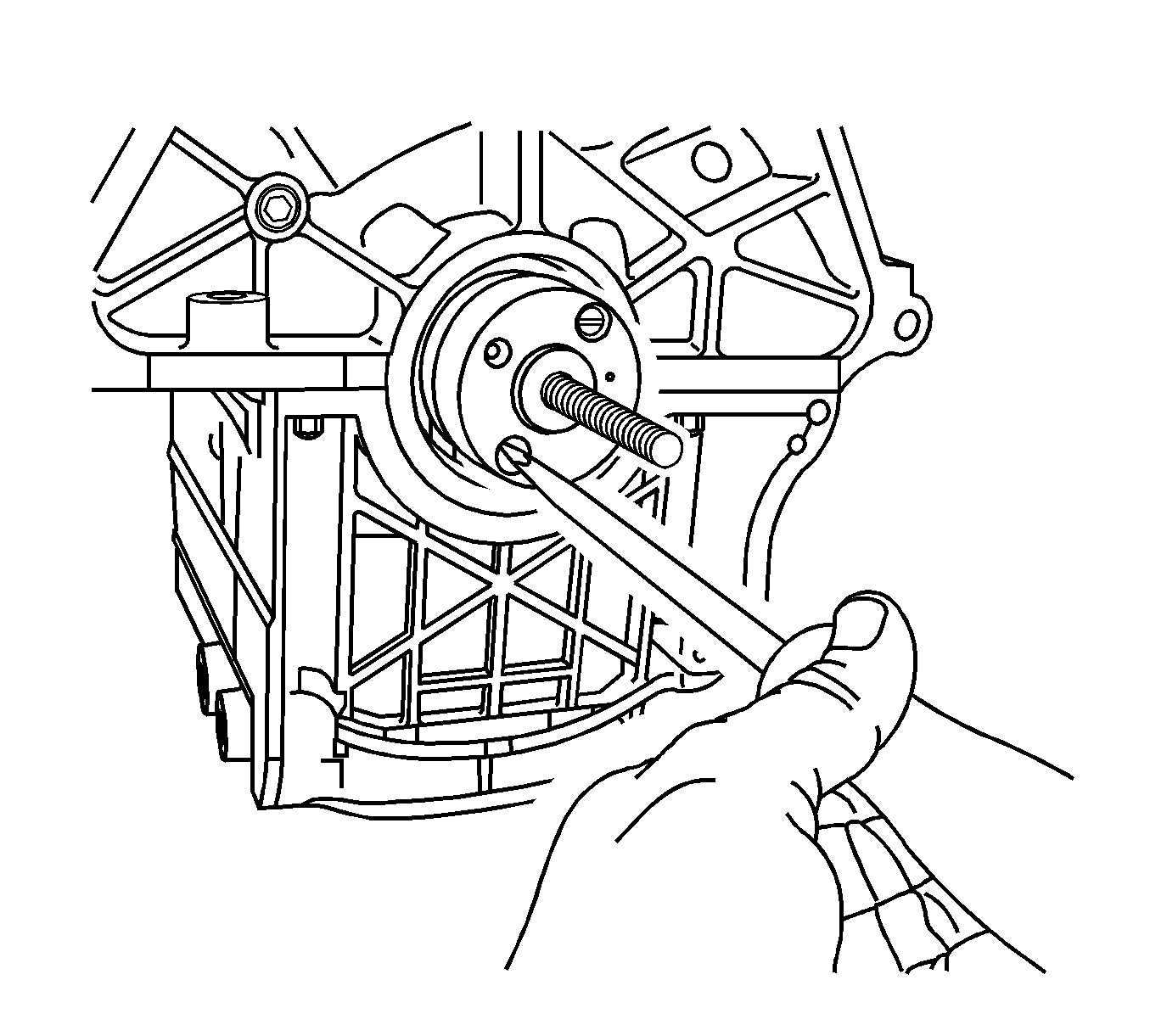
- Using a large flat blade screwdriver, tighten the two mandrel screws to the crankshaft, ensuring the mandrel
is snug to the crankshaft hub.
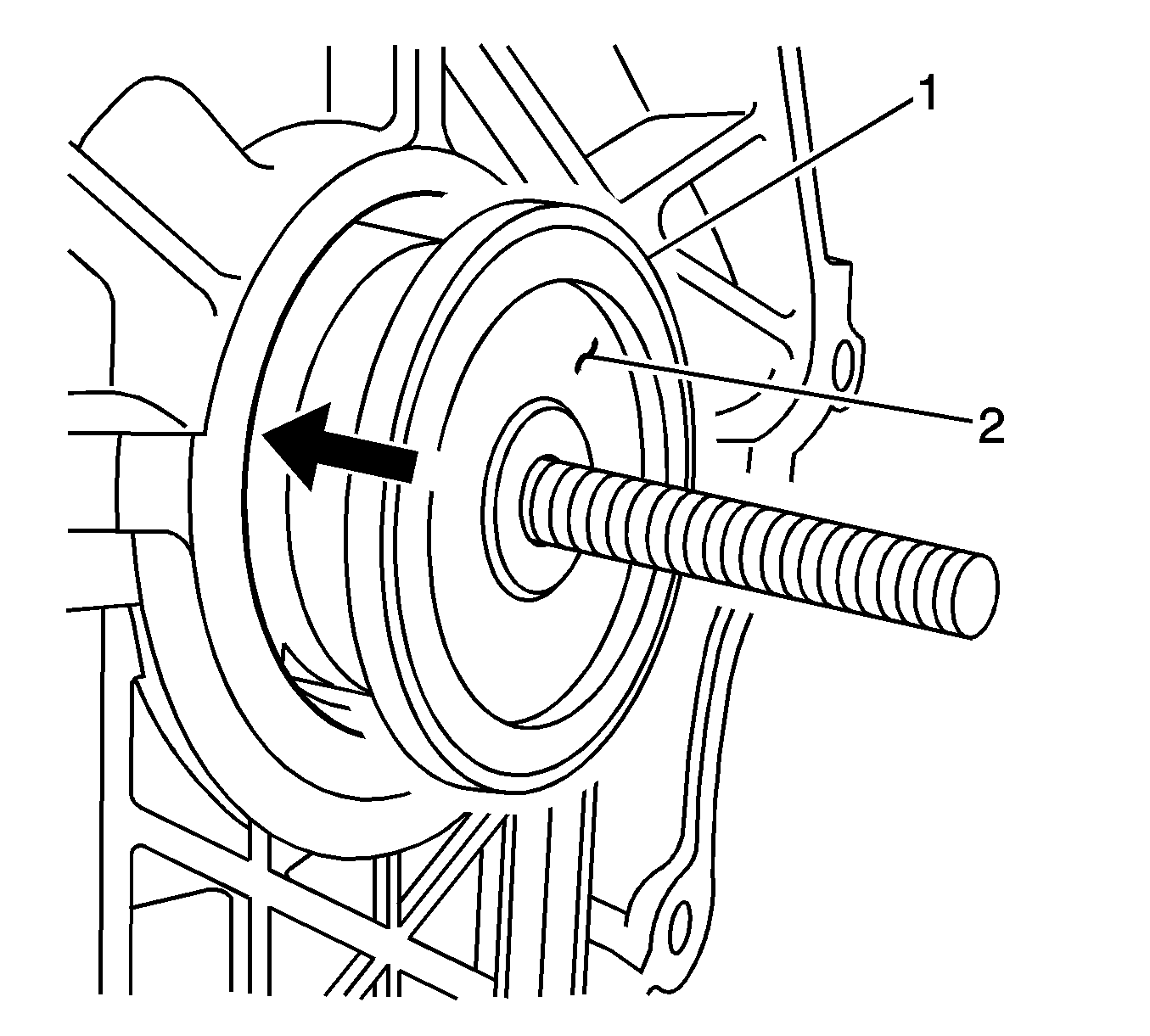
Important: The seal will only fit one way onto the mandrel, and if properly installed, will center on a step that protrudes from the center of the mandrel.
- Install the rear main seal (1), with the protective nylon sleeve attached (2), onto the mandrel.
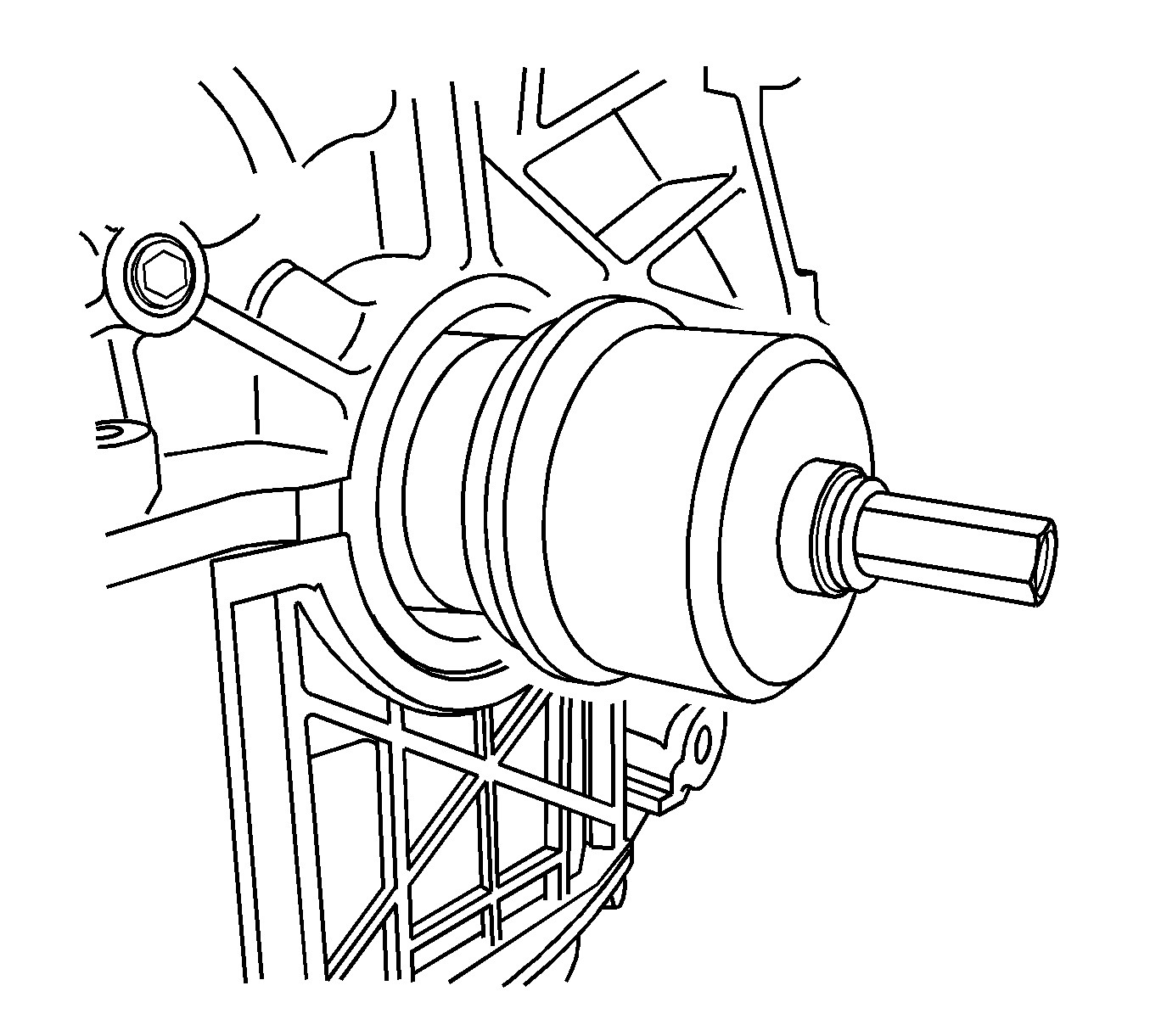
- Install the outer drive drum onto the mandrel.
- Install the bearing, washer, and the drive nut onto the threaded shaft.
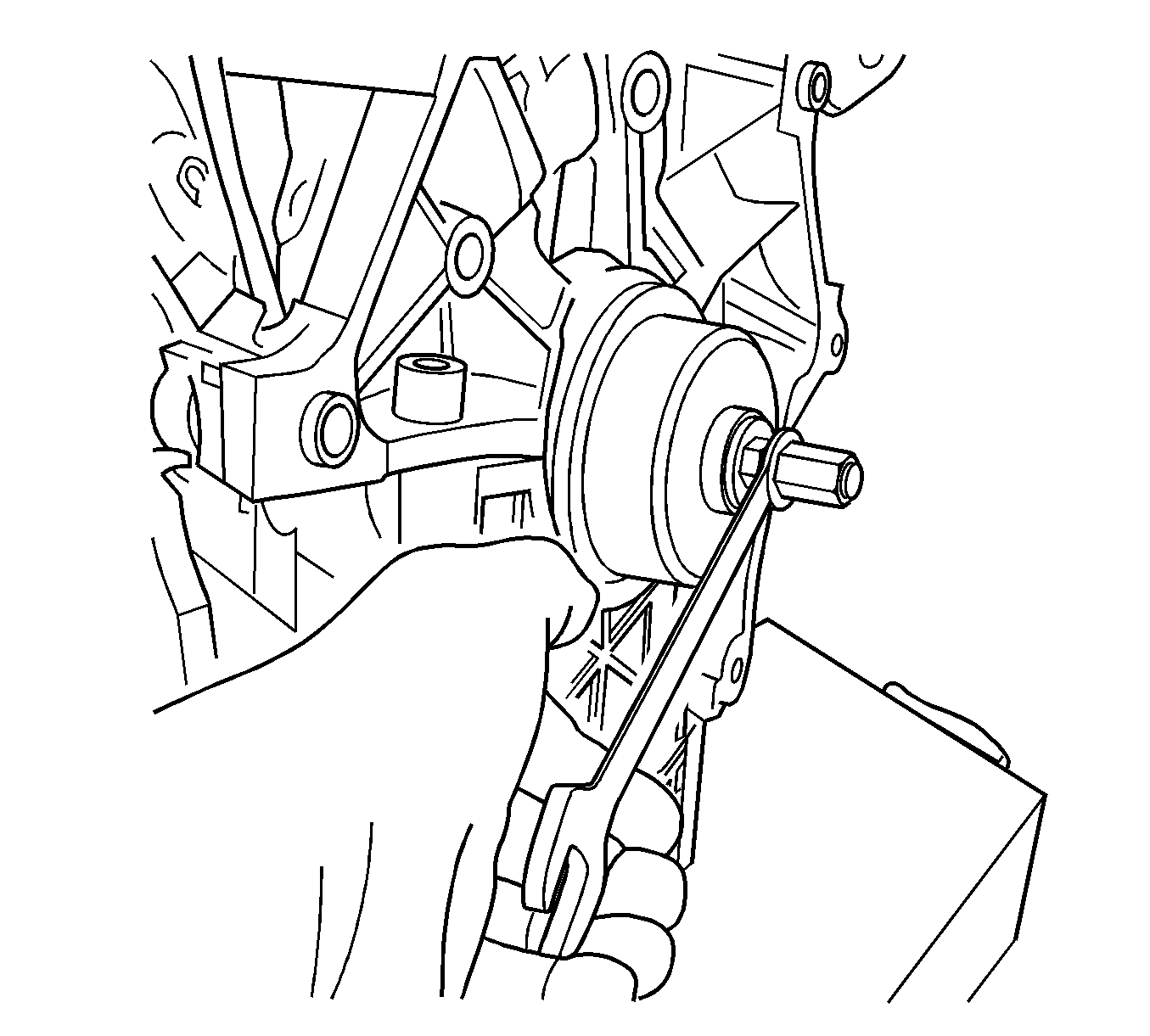
- Using a wrench, turn the drive nut on the mandrel, which will push the seal into the engine block bore.
- Turn the wrench until the drive drum is snug and flush against the engine block.
- Loosen and remove the drive nut, washer, bearing and drive drum. Discard the nylon plastic seal protector.
- Verify that the seal has seated properly.

- Use a flat blade screwdriver to remove the two attachment screws from the mandrel and remove the mandrel from
the crankshaft hub.
Special Tools
EN-48108 Rear Main Oil Seal Installer
For equivalent regional tools, refer to
Tools and Equipment.

Caution: Do not remove protective nylon sleeve prior to installation. The rear main oil seal installation tool is designed to install the rear main seal with the protective sleeve in place. Never apply
or use any oil, lubricants or sealing compounds on the crankshaft rear main oil seal.
Caution: Clean the crankshaft sealing surface with a clean, lint-free towel. Inspect lead-in edge of crankshaft for burrs/sharp edges
that could damage the rear main oil seal. Remove burrs/sharp edges with crocus cloth before proceeding.
- The
EN-48108 installer
tool has a unique design to allow the technician to easily install the rear main seal squarely to the correct depth and direction.
Before proceeding with installation, review the above illustration to become familiar with the following components:

- Align the mandrel dowel pin to the dowel pin hole in the crankshaft.

- Using a large flat blade screwdriver, tighten the two mandrel screws to the crankshaft, ensuring the mandrel is snug to the crankshaft hub.

Note: The seal will only fit one way onto the mandrel, and if properly installed, will center on a step that protrudes from the center of the mandrel.
- Install the rear main seal (1), with the protective nylon sleeve attached (2), onto the mandrel.

- Install the outer drive drum onto the mandrel.
- Install the bearing, washer, and the drive nut onto the threaded shaft.

- Using a wrench, turn the drive nut on the mandrel, which will push the seal into the engine block bore.
- Turn the wrench until the drive drum is snug and flush against the engine block.
- Loosen and remove the drive nut, washer, bearing and drive drum. Discard the nylon plastic seal protector.
- Verify that the seal has seated properly.

- Use a flat blade screwdriver to remove the two attachment screws from the mandrel and remove the mandrel from the crankshaft hub.














